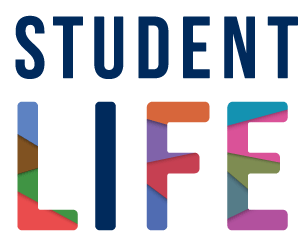Formerly also known as Asperger’s Syndrome, Pervasive Developmental Disorder and Autism.
If you are experiencing cognitive, social and/or sensory challenges affecting your learning in lectures, labs, tutorials, and/or professional programs and you are, or suspect you are, on the Spectrum, we encourage you to register with Accessibility Services.
Document requirements
Documentation for ASD often includes a psycho-educational report and/or other medical documentation which outlines functional impacts on academics.
These documents could include:
- A Certificate of Disability completed by a health practitioner whose scope of practice includes the ability to diagnose ASD.
- Psycho-educational Assessment Report completed within the last 5 years or after the age of 18. Find more information on test batteries for psycho-educational assessments on the Learning disabilities & Attention Deficit Hyperactivity Disorder page.
Documentation based on an assessment conducted in early childhood that does not include reassessment as an adult, with adult impacts listed in the report, may not be sufficient.
Depending on what documents you provide, we may require additional assessment information for more than minimal accommodations.
Important to note: A full psycho-educational or neuropsychological assessment conducted in person would be necessary for consideration of more extensive accommodations and supports requiring funding.
Examples of where a psycho-educational assessment report would be needed:
- Considerable extra time when writing tests/exams
- Alteration of assessment formats
- Cue sheets
- Spell check/grammar check
- Certain types of technology and funding
Additionally, assessment scores on these test batteries must demonstrate impaired performance not relative weakness.
Review our guide to submitting documents to Accessibility Services to learn how to prepare and send your forms correctly.
ASD Assessor’s Assessment Documentation Checklist
Here is a checklist of what should be included that you may show to the provider performing the psycho-educational assessment:
- The date of the assessment is clearly indicated in the report.
- The age of the client at the time of assessment is indicated in the report.
- The format of the assessment is clearly indicated in the report:
- Virtual (screen and audio, audio only).
- In-person.
- Telephone.
- Combination (specifics are indicated in the report).
- The report comments on how the referral for an ASD assessment was made (e.g., self-referral, referred by general practitioner, other regulated health practitioner, school/social agency).
- The form(s) of assessment and how each was administered is clearly outlined in the report:
- Interview of client.
- Outline specifically what assessment tools were utilized:
- Common assessment tools for ASD include: ADOS-2 Autism Diagnostic Observation 2, The Adaptive Behavior Assessment System 3rd Edition and exploration of developmental history, in addition to clinical expertise in evaluating ASD.
- Screening Questionnaires, interviews completed by informants (parent/partner/friend, teacher).
- Since ASD students may have persistent challenges in social communication and social interaction that may impact them in the post secondary setting outlining these impacts will be important.
- The assessment rules out other causes/including other disabilities that might account for the current functional impairments the client is exhibiting and that are being attributed to ASD and this is indicated in the report (e.g. acute mental health episodes, anxiety etc.)
- The assessment details the disability impacts on academic studies.
- The report outlines any specific sensory challenges that should be considered.
- The assessment details the disability impacts on academic studies (see note below).
An accessibility advisor will use the information provided about functional limitations/barriers by the assessing health practitioner to make recommendations to the student about possible accommodation, supports and skill building opportunities.
Note: If the assessing health practitioner wishes to provide accommodation recommendations, they need to be individualized to the student and the assessing health practitioner needs to indicate that they have taken the necessary steps to fully understand the nature and type of expectations the student is expected to meet as part of their specific academic program before making recommendations that the University will take into consideration (e.g. classroom, laboratory, professional placement).
-

Associated Services
Accessibility Services registration & documentation requirements – St. George Campus
Accessibility Services supports students who experience difficulties affecting their learning in lectures, labs and/or tutorials through academic and practicum accommodations. Learn more about Accessibility Services registration & documentation requirements – St. George CampusAccommodations renewal
Starting May 1, students currently registered with our office will receive an email from Accessibility Services outlining the renewal process that is available to them for the upcoming academic year. Learn more about Accommodations renewalAccessibility advisor support
You and your accessibility advisor will work together to develop your academic accommodations. Learn more about Accessibility advisor support




